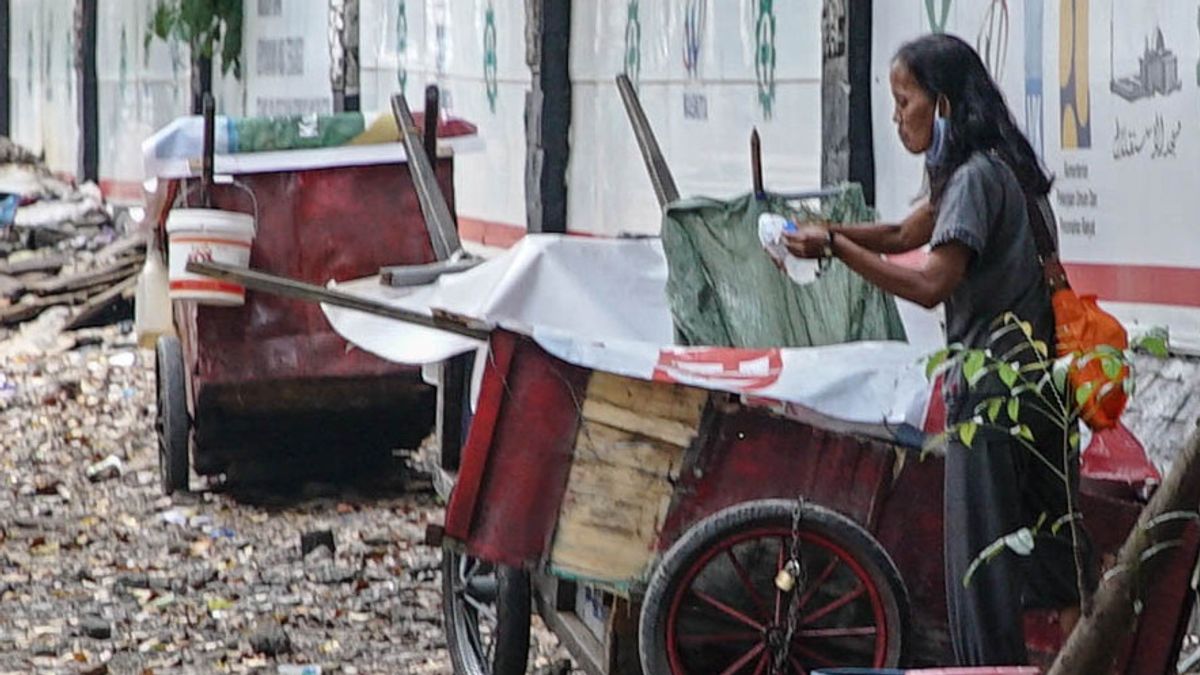JAKARTA - Concerns about the threat of food security have become a global concern. Moreover, there is a warning from the Food and Agriculture Organization (FAO) about the threat of crisis, so that countries have implemented policies to ban food exports.
Associate Center of Reform on Economics (CORE), Dwi Andreas, spoke up on this global issue. He believes, if the world food crisis will not happen at this time even though the COVID-19 pandemic outbreak will not be over.
In 2007 and 2008, there was a decline in world food production and at that time it was accompanied by soaring food prices. This situation, said Andreas, was repeated in 2011 when the Arab Spring occurred.
"But the global food condition this time is somewhat different. In 2019, food production has actually reached its highest point. In terms of prices, the food price index has actually dropped," he said in a virtual discussion, Tuesday, July 21.
Chairperson of the Indonesian Association of Seed Banks and Agricultural Technology (AB2TI) said that there are two main facts that are indicators of the food crisis. First, the decline in global agricultural production. Second, increasing global food prices.
Furthermore, said Andreas, these two factors currently do not exist at all. According to him, it was the opposite of everything. In fact, the back-to-use ratio in March reached 30.9 percent, which is one of the highest so far.
"Because usually it only ranges from 15 to 25 percent. So the world food crisis will not occur," he said.
Increasing Indonesian Food SecurityAndreas said, Indonesia has recorded improvements in the last few years. Reflecting on the Global Food Security Index data, Indonesia's food security is ranked 62 in 2019, from 65 in 2018.
Furthermore, Andreas said, the improvement in the ranking was helped by the increase in food imports in recent years from 21.9 million tons of imports in 2014 to 27.6 million tons of imports in 2018.
It is noted that the highest food security ranking is occupied by Singapore, where almost 100 percent of its food comes from imports. Seeing this example, Andreas argues that there is no correlation between food security and efforts to increase food production.
"Imports are finished for food security. But remember, what happened in Middle Eastern and North African countries, when there was a surge in food prices, they also destroyed," he said.
Andreas said a country like Indonesia would be quite at risk if it depended on imports for food security.
"After President Jokowi said that the import was suppressed, it fell a little. So this is the problem, it turns out that our food security is determined by food imports," he said.
As is known, the Head of Economy and Assistant Director of the Department of Economy and Social Development of the World Food and Agriculture Organization (FAO), Maximo Torero Cullen, in mid-April said there was a potential for a world food crisis due to the implementation of regional quarantine or lockdowns to combat COVID-19. 19.
Indonesia will face several challenges in the food sector. BMKG predicts that 30 percent of Indonesia's territory will experience a drier than usual dry season. According to reports received by President Joko Widodo from his ministers, a number of foodstuffs are still in deficit in several provinces.
The English, Chinese, Japanese, Arabic, and French versions are automatically generated by the AI. So there may still be inaccuracies in translating, please always see Indonesian as our main language. (system supported by DigitalSiber.id)








